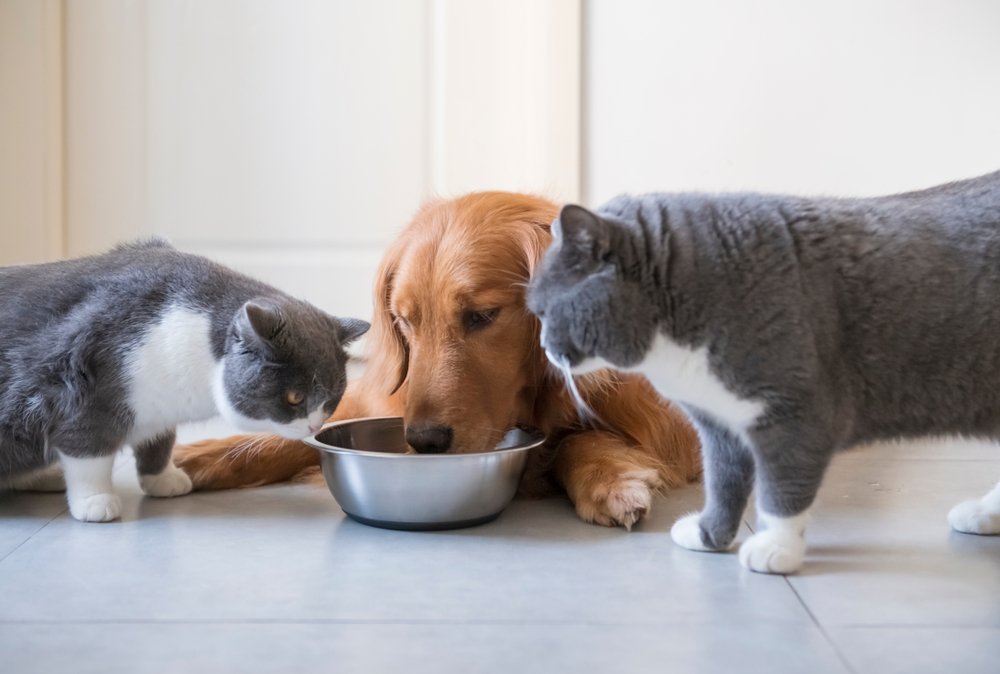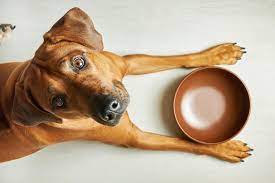Part of the joy of owning a pet is getting to spoil them rotten. Whether it’s giving your favorite feline a special cat toy (Da Bird Feather Teaser, anyone?) or rewarding your dog with all-natural dog chews, showering your pets with love never gets old!
Table of Contents
Unfortunately, there can be too much of a good thing—especially if that thing happens to be food. According to the Association for Pet Obesity Prevention, 60 percent of cats and 56 percent of dogs are at risk for weight-related disorders.
Just like humans, many dogs and cats love nothing more than to chow down on a tasty meal or chew. But eating too much food can lead to a number of health problems, including obesity, heart disease, diabetes, lethargy, and—worst of all—a reduced lifespan.

It goes without saying that you want your furry friend to live a long, happy life, and that starts with proper nutrition. So, how do you know if you’re overfeeding your four-legged companion? Here are signs that you might be going overboard on your pet’s food.
Sign #1: Weight Gain
We know—this one seems obvious, right? But the truth is, many pet owners don’t weigh their pets regularly and therefore have no idea that their pet is slowly packing on pounds. The good news is that checking your pet’s weight is fairly simple.
Also Read: Diarrhea in Dogs: Treatment & Causes
First, you’ll need to dig up your pet’s records (you can request these from your vet) and find out how much your pet weighed during their last vet visit. Once you have that number, weigh yourself on a scale before weighing yourself while holding your pet.
Subtract the two numbers and that’s it! You’ve got your pet’s weight.

Sign #2: Above-Average Body Condition Score
Let’s face it, at-home weight scales can be unreliable. If your pet looks a little overweight, but you aren’t sure one way or another, try checking your pet’s body condition score. Often used by veterinarians, a pet’s body condition score is essentially a pet version of our body mass index (BMI) score.
This tool quantifies how underweight or overweight your pet is on a 1-5 scale, with 1 being very thin and 5 being obese.
To assess your pet’s body condition score, all you need to do is look at and feel your furry friend. Can you see your pet’s waistline?
Can you feel their ribs? According to the experts, you should be able to feel your pet’s ribs under a thin layer of fat and see their hourglass figure when looking at your pet from above.
Sign #3: Bowel Issues
Just because your pet isn’t overweight doesn’t mean that you’re not overfeeding them. In fact, one of the sneakier signs that you’re overfeeding your four-legged companion has to do with their digestive system.
Pets who consume too much food often have normal stools in the morning, followed by softer stools in the afternoon or evening.
That’s because overfeeding your pet puts additional strain on their digestive system, leading to problems such as loose stools, flatulence, and abdominal discomfort.
Sign #4: Lethargy
Does your dog seem uninterested in going for walks and playing with you? Does your cat seem groggy and excessively tired?
This is known as lethargy, and while it can sometimes indicate a serious, underlying problem, it’s also a fairly common sign of overeating.
Like people, pets who carry around extra weight may experience a higher incidence of fatigue and daytime drowsiness.
This, in turn, often makes it harder for pets to lose weight since they have less energy.
If your pet is lethargic, don’t take any chances—see your vet right away. That way, you can rule out potential underlying causes that might be making your pet groggy and tired.

